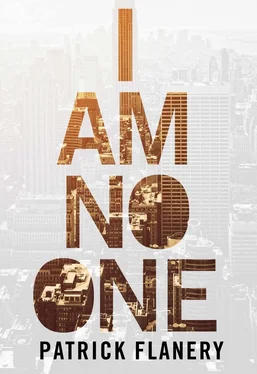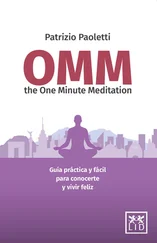They had called me a car service and as I traveled down to the Village, shock absorbers taking the jolt of manhole covers and potholes, brakes silent in a way that suggested whatever livery company operated the vehicle understood its customers expected the illusion of traveling in a bubble of comparative silence approximating the security of their well-protected homes, I thought of Fadia and Selim going about their lives in Oxford, the two of them sleeping in a flat almost certainly paid for with the money that slipped each month from my account to hers, childcare paid for with that same money so she could continue her doctoral studies under the supervision of my former colleague, a humorless woman raised in the western half of divided Berlin who was undoubtedly giving Fadia better guidance than I could as she continued to plumb the philosophical and historical ramifications of the media’s construction and treatment of leftwing terror in Europe during the twentieth century’s long Cold War.
Meredith and Peter and Susan were the first people I had told about Fadia and Selim, and while I understood their shock and anger at my deception, at what might reasonably be regarded as the failure of my own moral compass, no one among them had given any indication they were going to reject me. No one had said they never wanted to see my son or his mother. Everyone, even Susan, seemed to believe the onus was on me to take such actions as might prove necessary to right whatever had gone wrong. Action of some kind must be taken to clarify my situation with the authorities. This I remain willing to do. If you require further evidence, you only need ask. I will do all that you demand.
When I arrived back at my building the doorman Ernesto was again behind the front desk, back from whatever short holiday he’d had with his sister in Queens.
‘Professor! You got another delivery. Looks like the same kind of thing. With the last one, you know, you didn’t have any problems?’
‘Nothing I couldn’t handle. Did you remember — I asked if you could take a picture of the delivery person?’
Ernesto nodded, sliding the index finger of his left hand back and forth across the surface of his phone. He held up the device for me to see the image. ‘That’s your guy. Not a nice dude.’ The man was in profile and while it might have been Michael Ramsey, I could not be completely certain.
‘Did he say anything?’
‘Nope. Some of these delivery guys are like that, but you know this time I was looking at him and I realized this dude is no bike messenger. Gear’s all wrong, the clothes and the shoes. This guy’s, you know, at least not like a regular messenger. I thought maybe a student intern or something, but he looks too old for that.’ He paused a moment. ‘You recognize him?’
‘I think we’ve met before. Where’s the new package?’
He pointed across the lobby to the floor near the mailboxes, where a box like the others, perhaps a little larger, sat alongside a plastic Christmas tree that had grown up during my absence over the weekend. This fourth box was heavier than the first three, and I carried it into the elevator with a tug of dread that seemed to pull my feet down through the floor and dangle me over the bottom of the shaft.
As soon as I was inside my apartment, without opening the box, I went to check my voicemail, but there were no messages. Perhaps whoever was making trouble for me with my mother was not given to leaving messages, or was nothing more than a troublemaker, someone in Oxford, a new boyfriend of Fadia’s, even her brother, perhaps her father — more likely, as I thought earlier, Stephen Jahn himself. My number in New York is unlisted while my mother has always kept hers in the phonebook, concerned that old friends be able to reach her if their memories should fail them. At some point in the past I must have told Stephen that my mother lives in Rhinebeck, might even have mentioned her name.
Though the new box glowered at me from the front hall, I tried to ignore it, fixing a sandwich and opening a bottle of wine, but as I ate in front of the television and struggled to put the box from my mind I kept catching glimpses of its reflection whenever the screen went black until finally I put my food and drink aside, took a knife from the kitchen, and sliced open the flaps of the box.
Inside was not a stack of papers, as in the first three cases, but a second box, which contained a series of file dividers. I reached into the first section and pulled out a bundle of photographs. It took me a while to pick myself out of the crowds, but it soon became apparent that I was looking at a photographic record of my movements in Oxford and London in the months after Fadia first came to interview at my College. How young I looked! How naïve and full-faced and healthy! Only occasionally did I appear preoccupied or thoughtful, almost never scowling, and as I examined this record of my life from nearly a decade earlier, I felt something approaching gratitude for that reminder of the man I once was.
I dropped the photos back into their section and made my way through the subsequent divisions, each one bringing me closer to the present. There were photos of me on the street, sometimes in my car (the car I had sold before leaving Oxford, a car I only ever used to go to the grocery store or escape alone on drives into the Cotswolds), my face seemingly captured by a CCTV camera. There were photos from my travels, from trips home to New York, from research and conference visits to cities in Europe and North America. There was nothing, at first, that one would call incriminating or embarrassing, except perhaps the state of my hair or my weight or my occasional bad dress sense. There were no photographs of me picking my nose or scratching my crotch or digging in my ear. For the most part, I looked like an ordinary man of my age, if not always as suave or sophisticated as I liked to imagine I was. My jaw began to grow slack as the years passed, as if I was holding my teeth apart with my lips closed, my jowls became jowlier, the wisdom peaks in my hairline ate deeper into the scalp, my weight fluctuated, I could recognize the periods during summers when I was exercising and turned lean, and the winter months when, overindulging in High Table hospitality, I pillowed to fat.
There were pictures of Meredith as well, of the two of us together in Oxford and New York, images of my mother, of various colleagues, a photograph of me and Bethan taken long after our brief liaison, then pictures of me in the company of the few other women who made up the short inventory of my intimates during those years in exile. And of course, as I came quickly and anxiously to expect, the deeper I delved into the file, there were pictures of Fadia and me together, although these were always discreet, there was no indication we were anything other than student and teacher speaking briefly on Turl Street for instance, or pausing in the Old Schools Quad of the Bodleian Library or meeting for a coffee in the café on the second floor of Blackwell’s Bookshop on Broad Street. I congratulated myself on the public restraint I had shown. No sign of a hand straying to touch her hair, no fingers clasping, no kiss on the cheek. Nonetheless, there was a record of our acquaintance, and this visual record sent me back to the files of phone numbers and internet addresses and I knew from a quick glance that all our communications must necessarily be present there as well. And then I realized that somebody somewhere — Michael Ramsey, surely — must be using facial recognition software to search through an existing archive of images, just to demonstrate to me that I had long been observed and my movements recorded, as if, from the moment of first meeting Fadia that day she came to interview at College, I had placed myself on the radar of whatever entities are entrusted to watch over our security, and for no better reason than because of her relation to three men — her father, her uncle, her brother — who were at the time figures in Mubarak’s government.
Читать дальше












